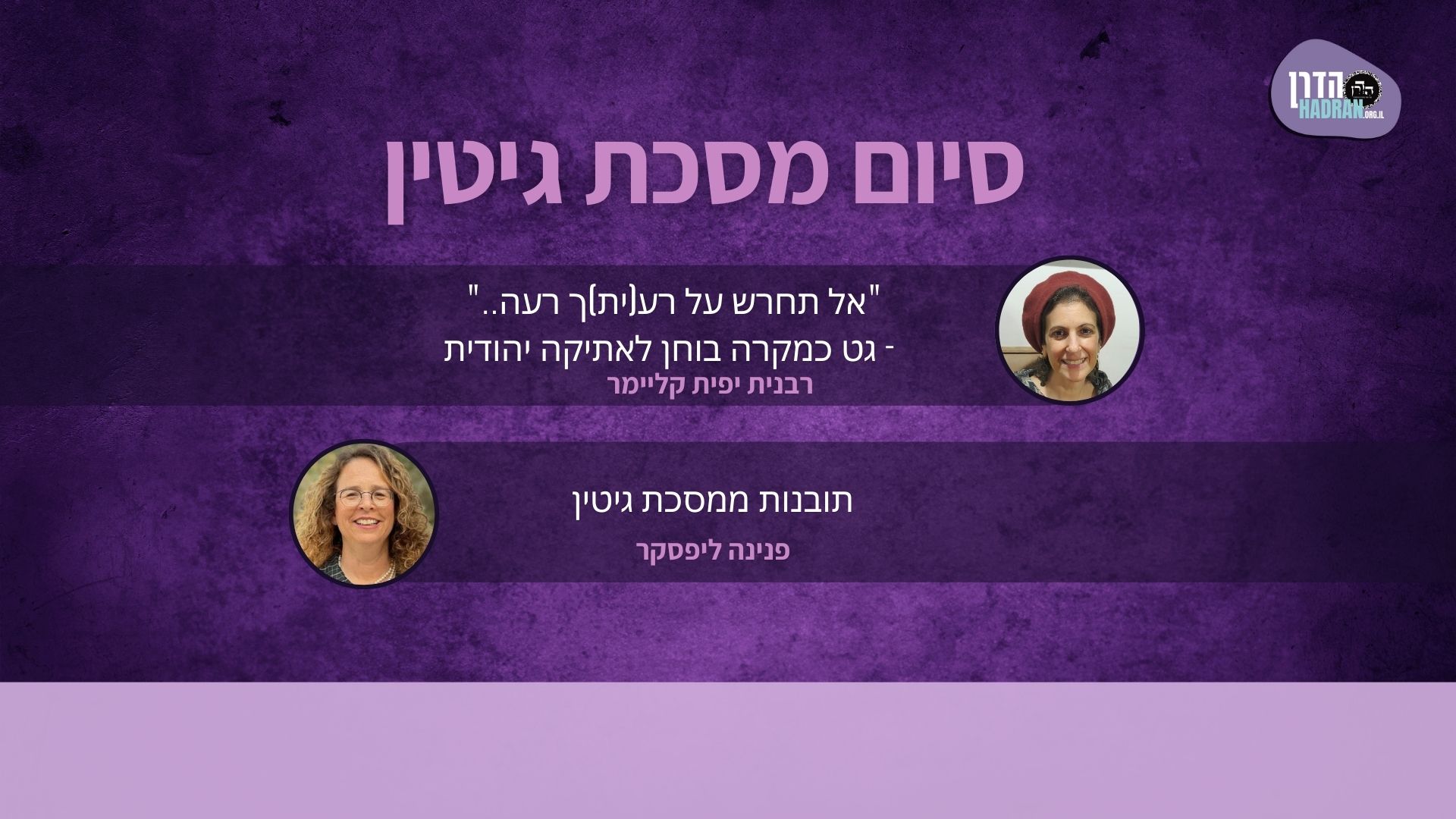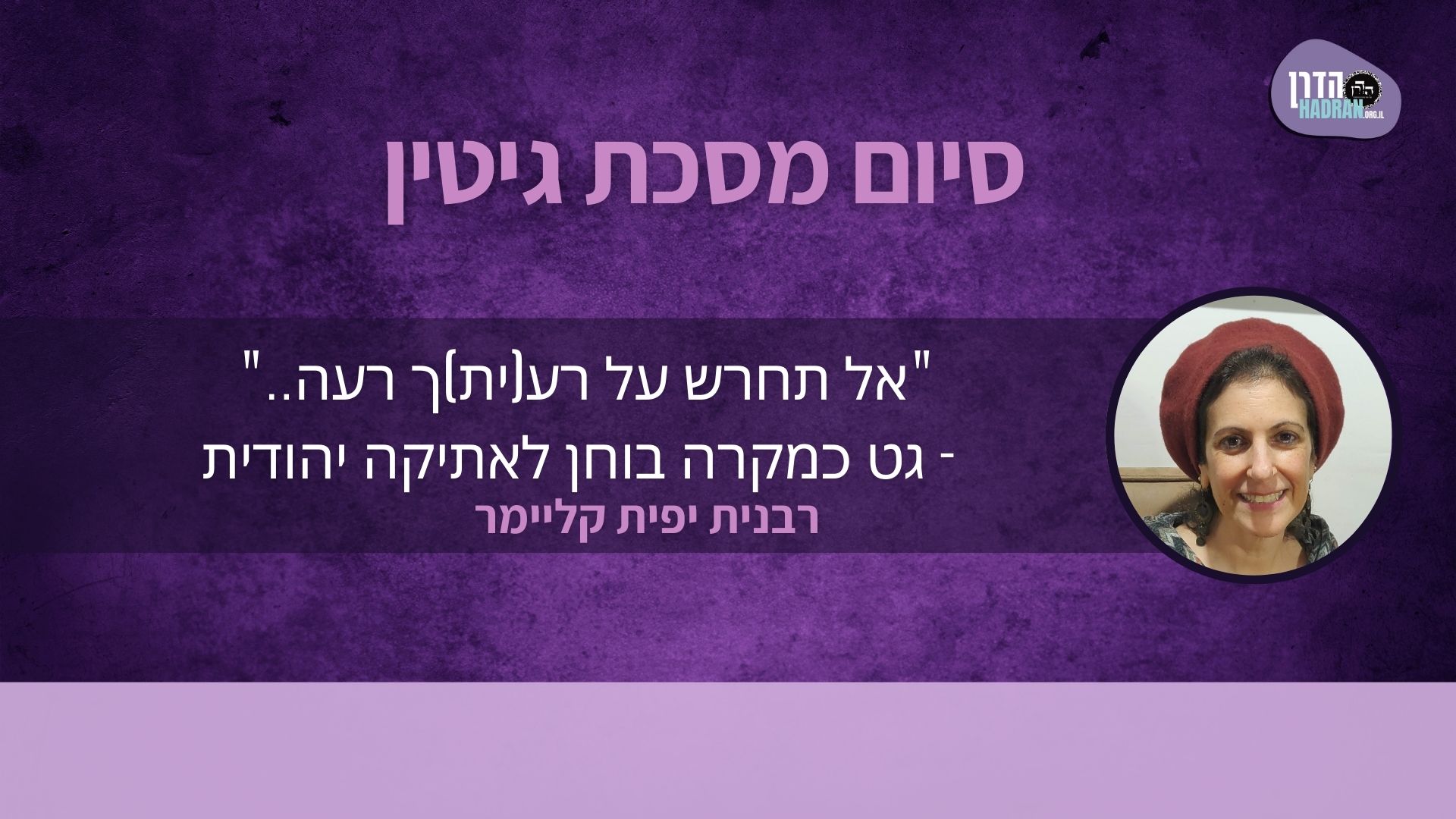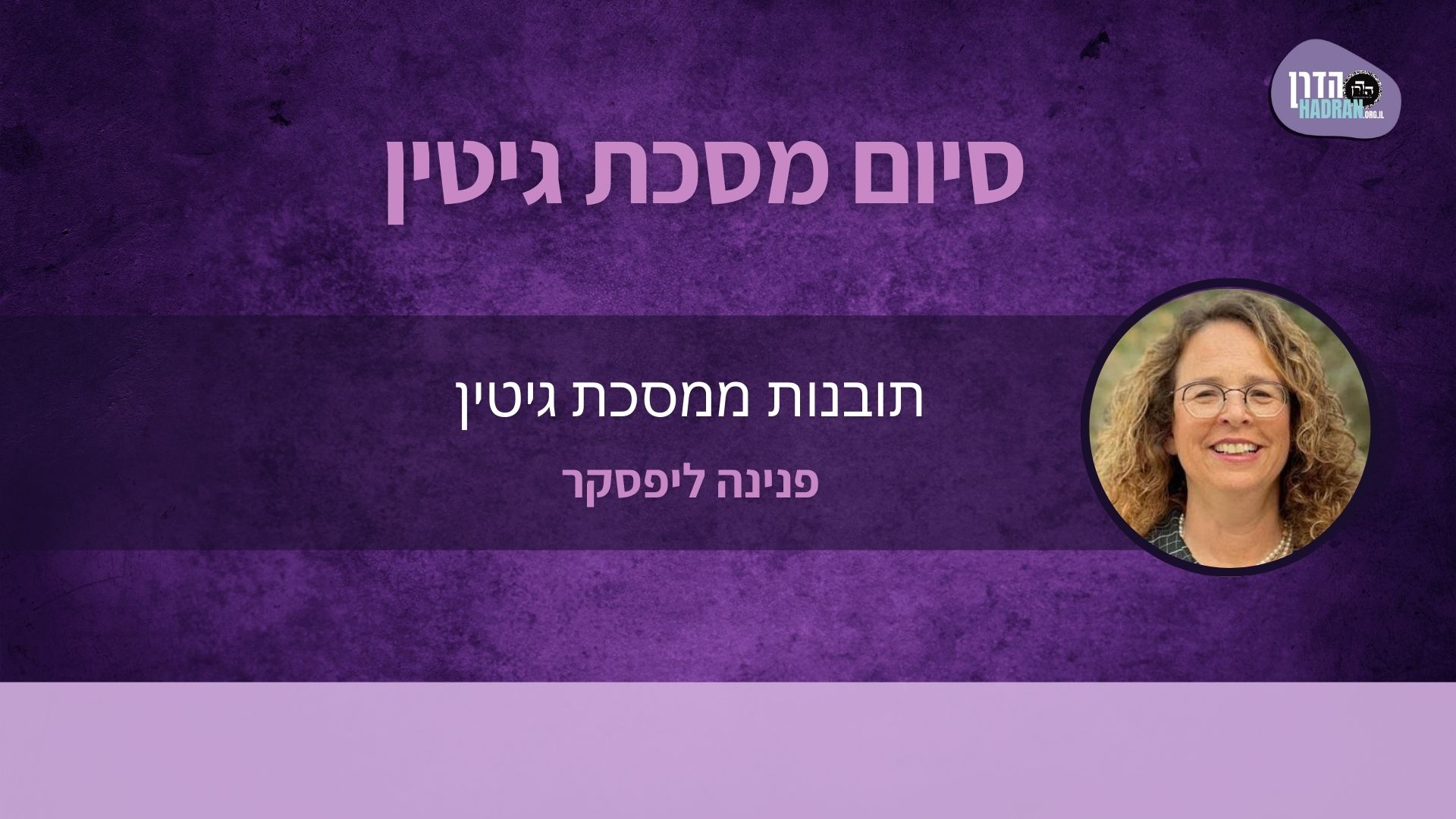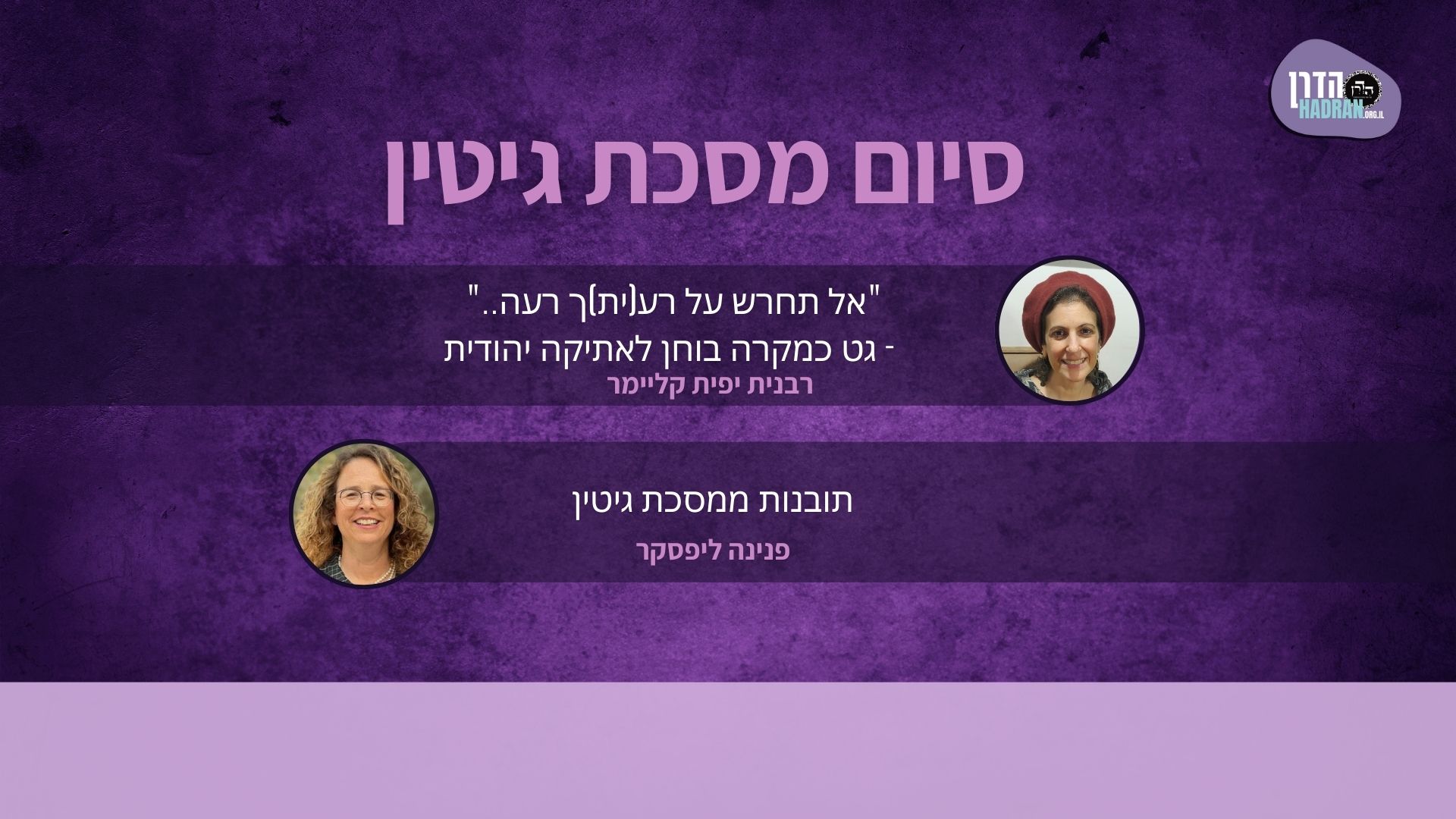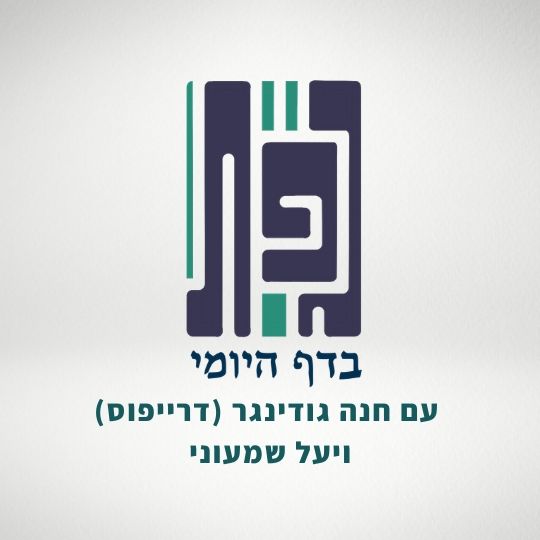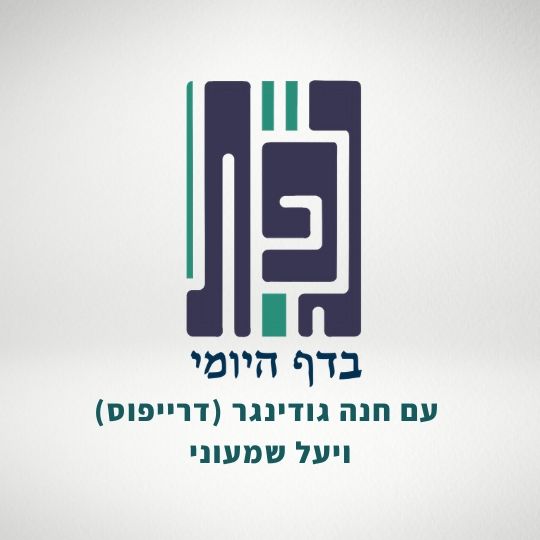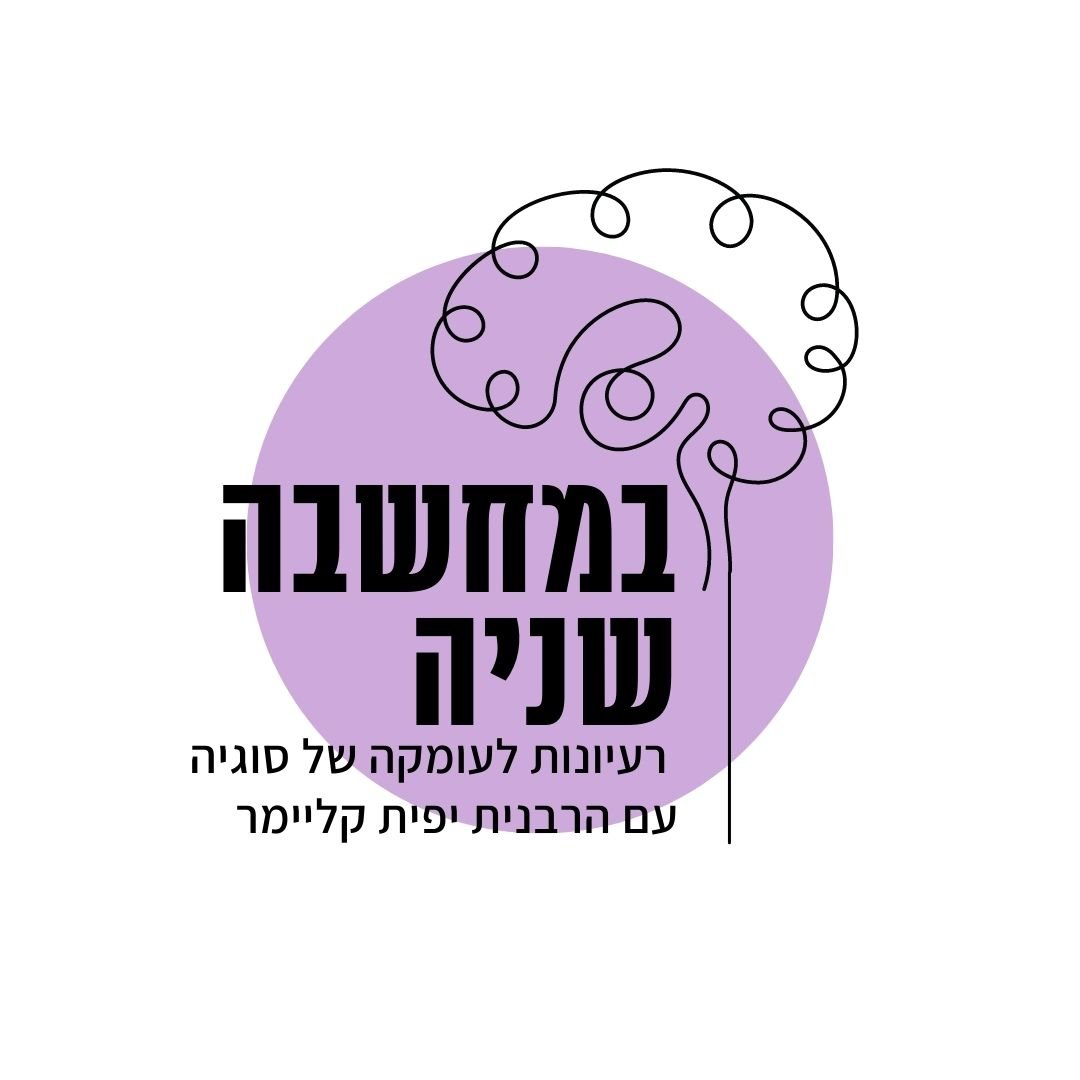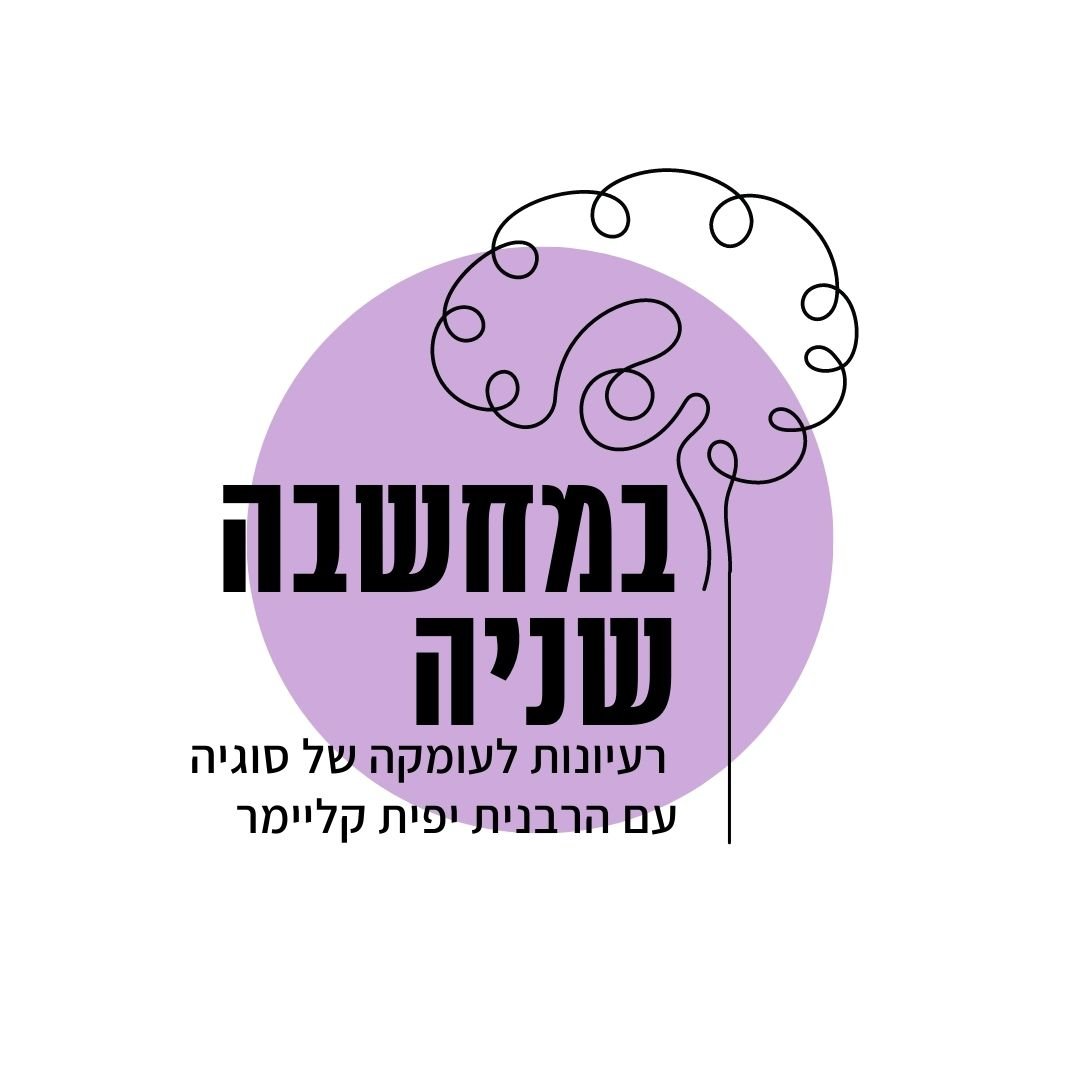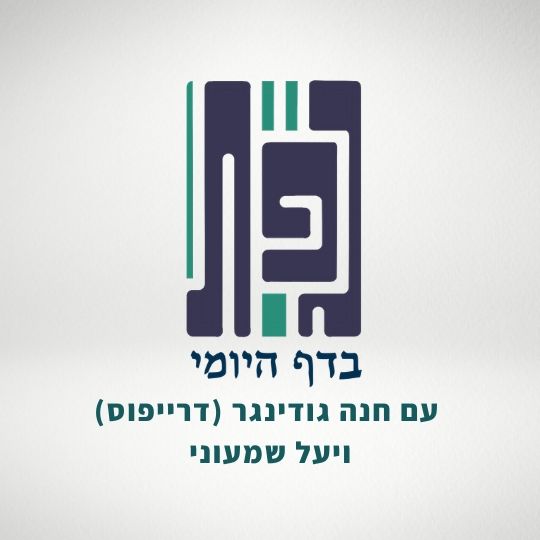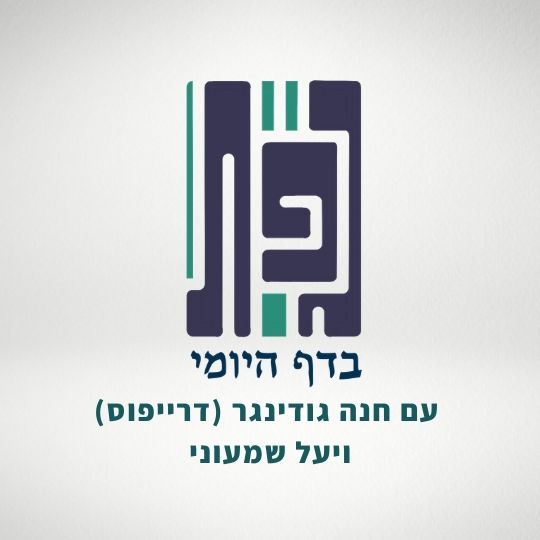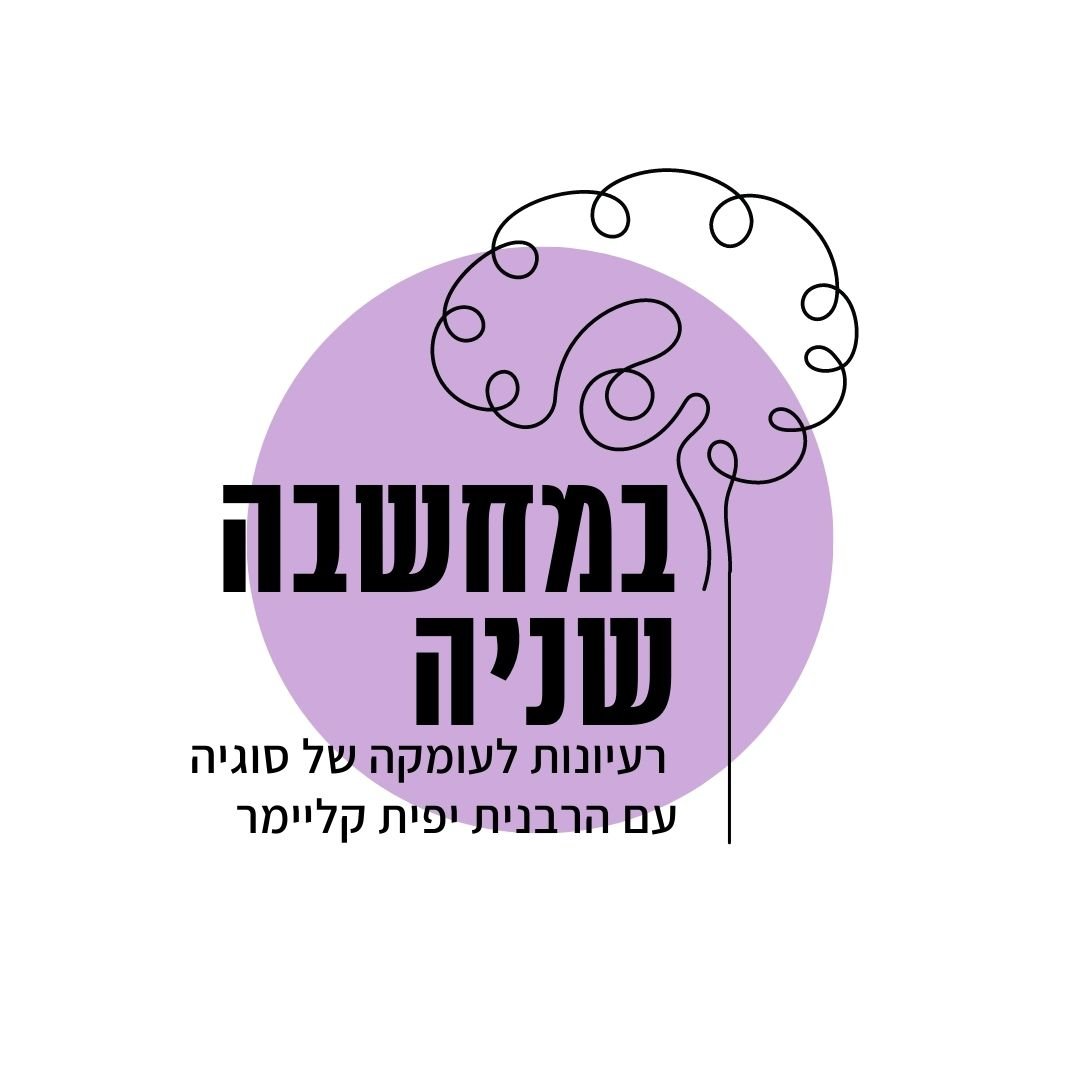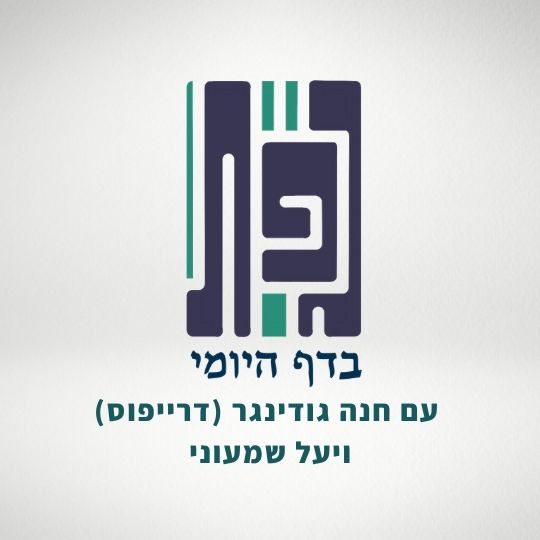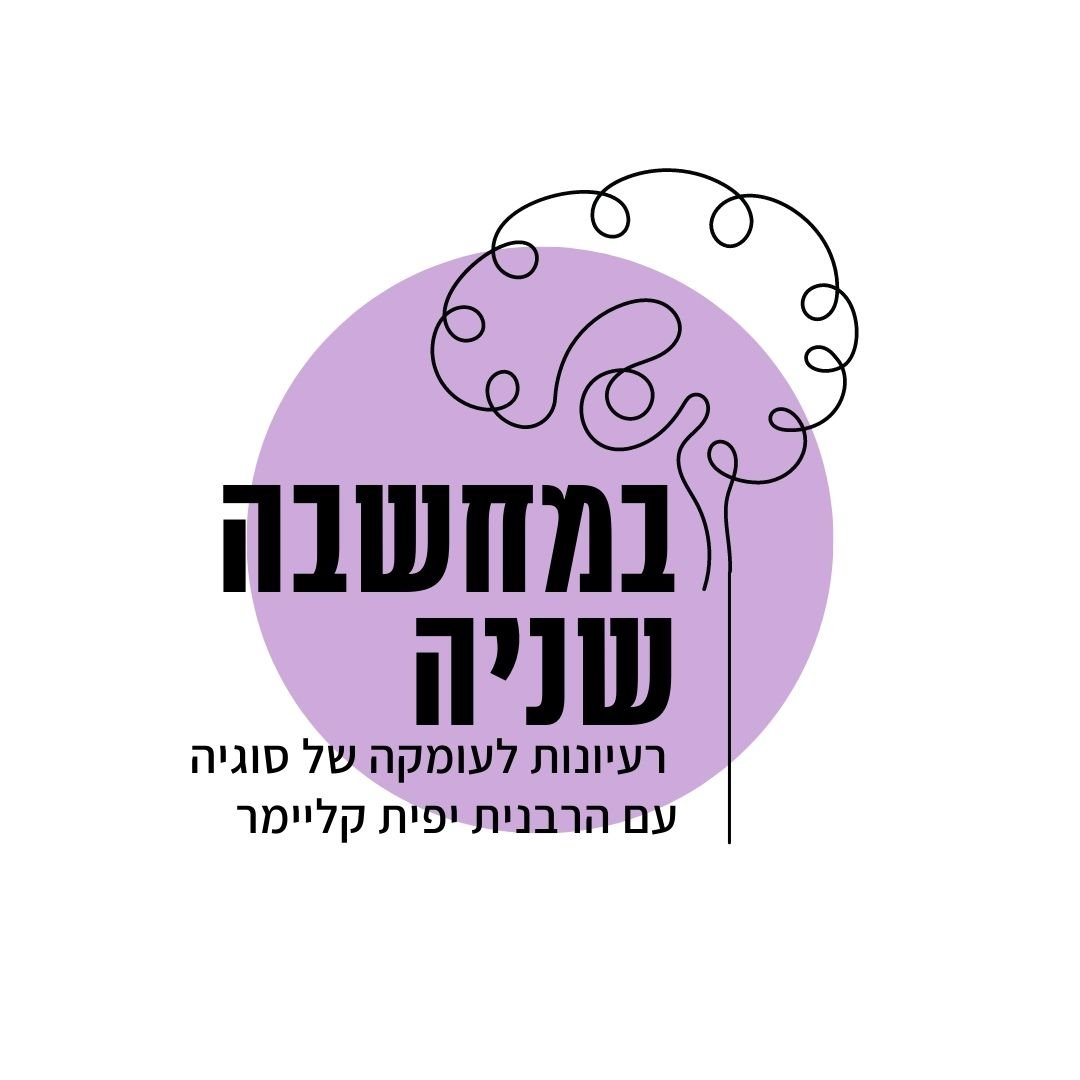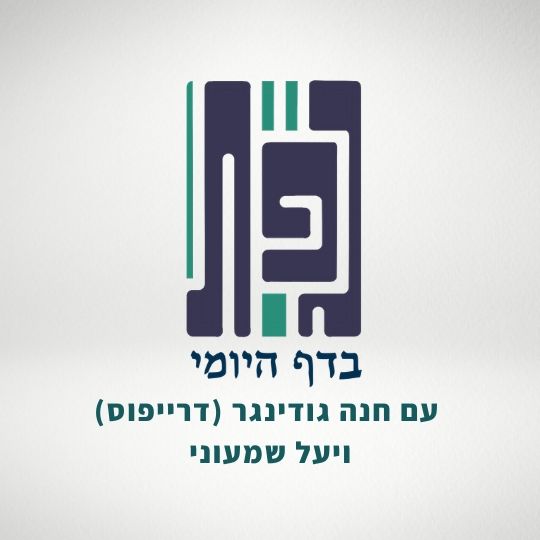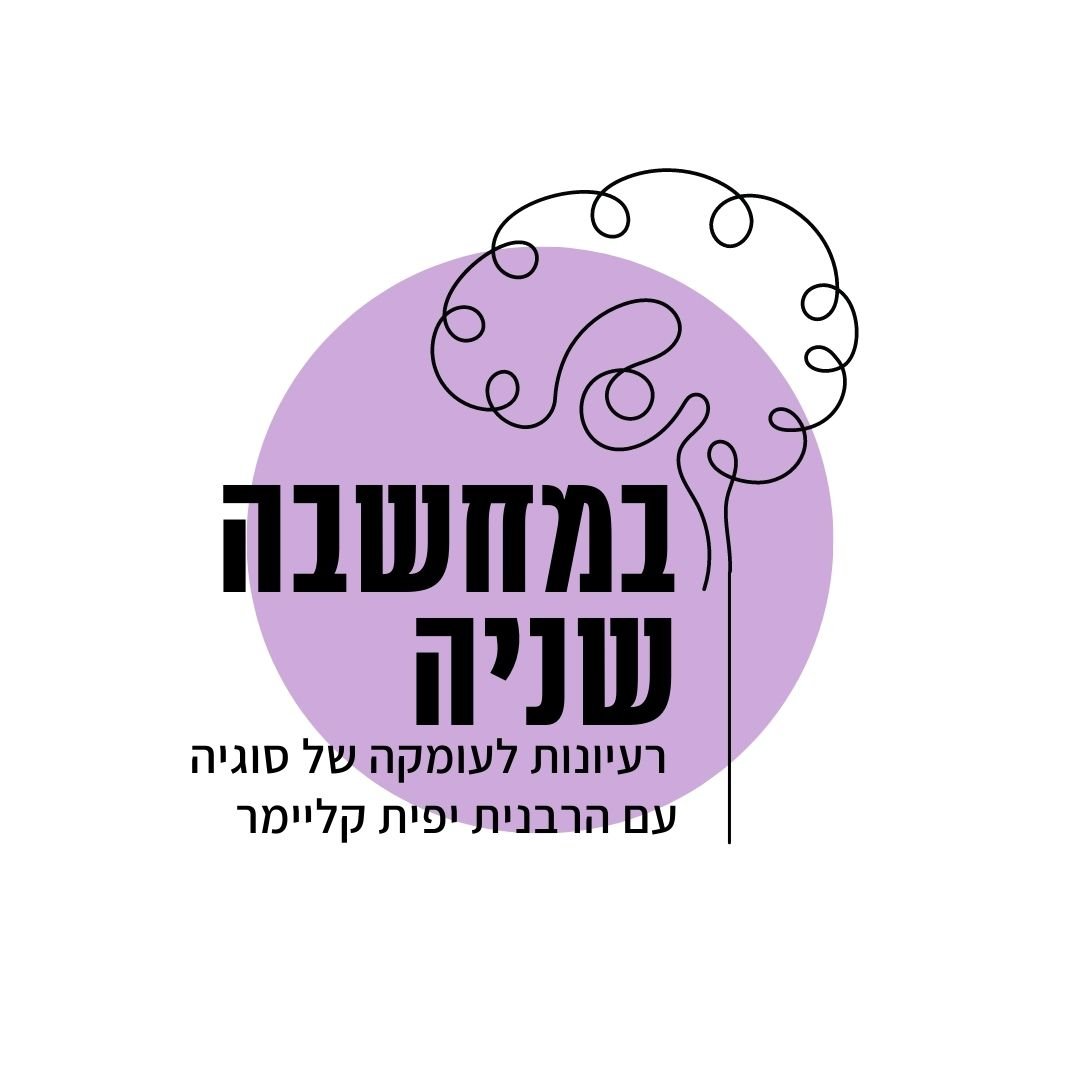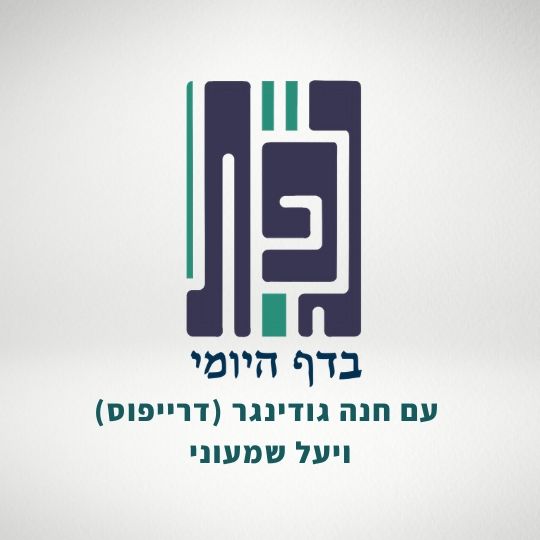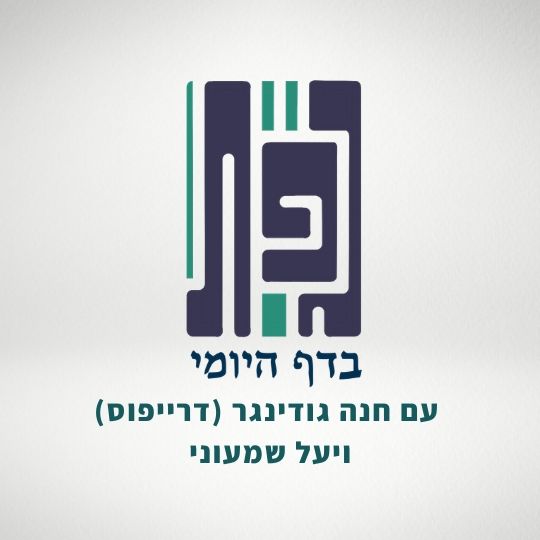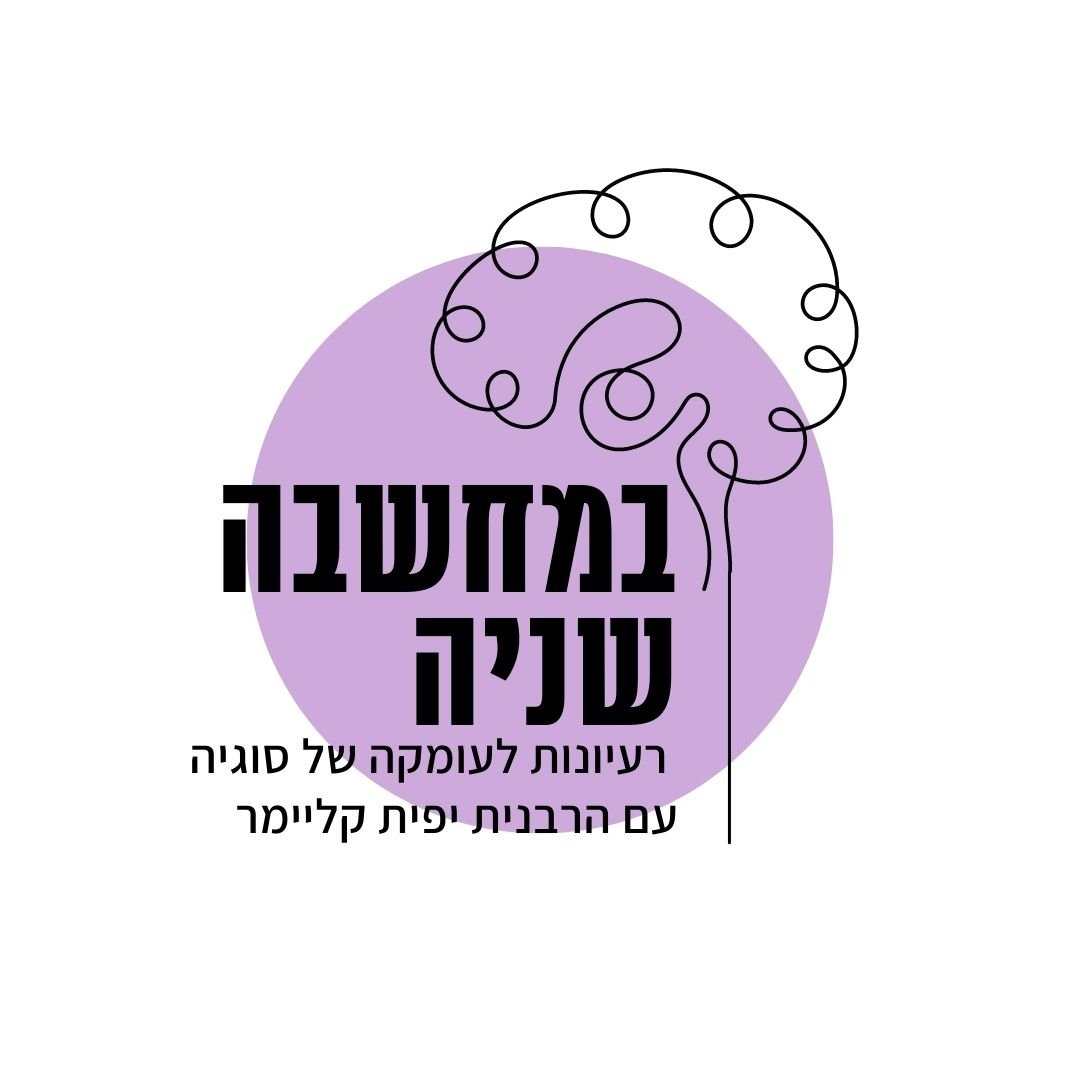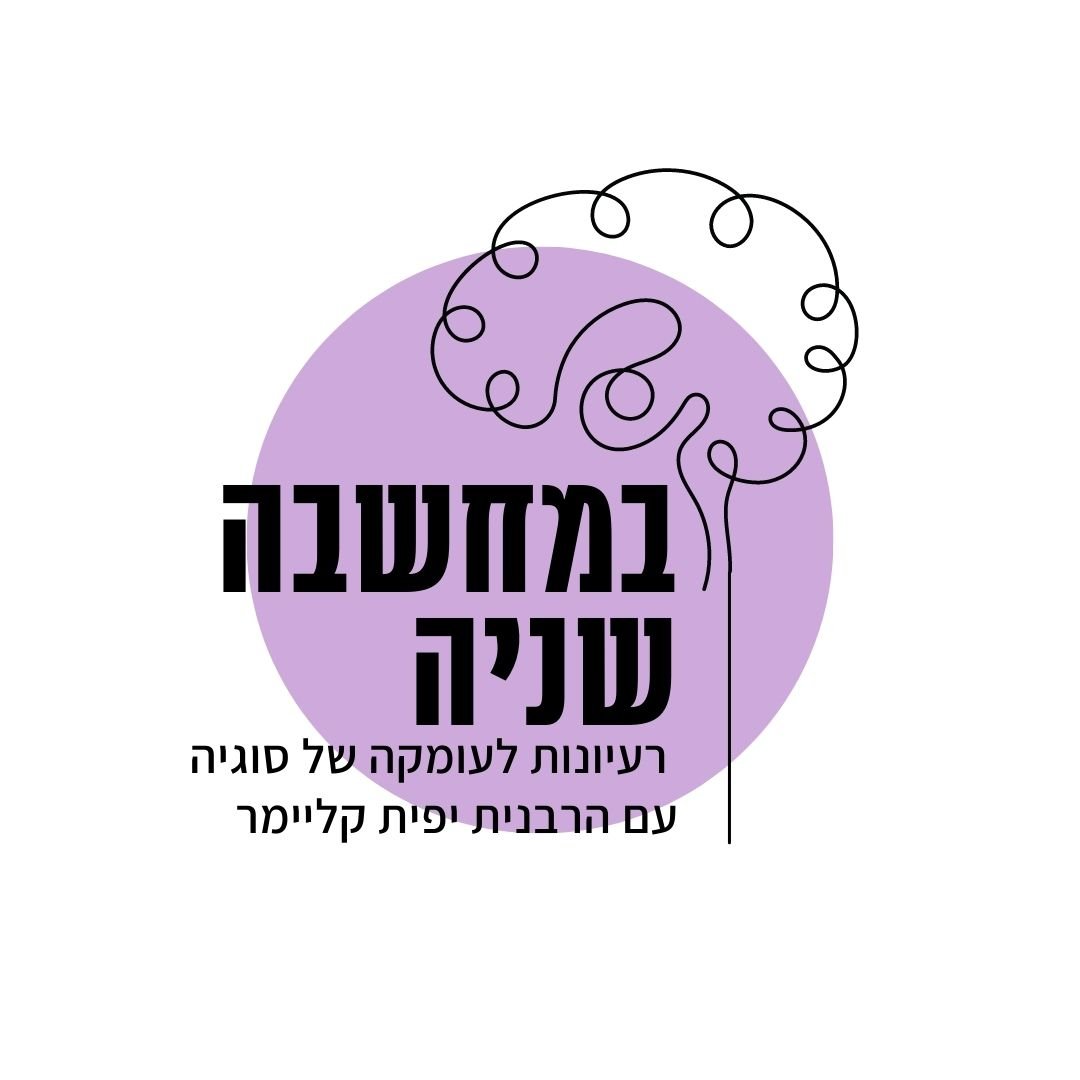גיטין ה
אִילֵימָא חֵרֵשׁ, חֵרֵשׁ בַּר אֵיתוֹיֵי גִיטָּא הוּא?! וְהָתְנַן: הַכֹּל כְּשֵׁרִים לְהָבִיא אֶת הַגֵּט, חוּץ מֵחֵרֵשׁ שׁוֹטֶה וְקָטָן!
If we say that this is referring to a deaf-mute, is a deaf-mute fit to bring a bill of divorce? But didn’t we learn in a mishna (23a): Anyone is fit to serve as an agent to bring a bill of divorce to a woman except for a deaf-mute, an imbecile, and a minor, all of whom may not be appointed as agents at all, as they are not intellectually competent according to halakha.
וְאָמַר רַב יוֹסֵף: הָכָא בְּמַאי עָסְקִינַן – כְּגוֹן שֶׁנְּתָנוֹ לָהּ כְּשֶׁהוּא פִּקֵּחַ, וְלֹא הִסְפִּיק לוֹמַר ״בְּפָנַי נִכְתַּב וּבְפָנַי נֶחְתַּם״ עַד שֶׁנִּתְחָרֵשׁ. לְרָבָא נִיחָא, לְרַבָּה קַשְׁיָא!
And Rav Yosef said: With what are we dealing here? This is a case where the agent gave the bill of divorce to her when he was halakhically competent, but he did not manage to say: It was written in my presence and it was signed in my presence, before he became a deaf-mute. In other words, although at the time he was appointed he was fit to be appointed as an agent, he is currently unable to say anything. This works out well according to the opinion of Rava. However, it is difficult according to the opinion of Rabba, as he requires testimony that the bill of divorce was written for the woman’s sake.
הָכָא בְּמַאי עָסְקִינַן – לְאַחַר שֶׁלָּמְדוּ. אִי הָכִי, יָכוֹל נָמֵי! גְּזֵירָה שֶׁמָּא יַחְזוֹר דָּבָר לְקִלְקוּלוֹ.
The Gemara answers: With what are we dealing here? This does not refer to the main period of the decree. Rather, it is speaking of later generations, after the residents of countries overseas learned that a bill of divorce must be written for her sake, so there is no need for the declaration. The Gemara raises a difficulty: If so, meaning that this is referring to a situation where everyone is assumed to be knowledgeable, even if the agent is able to testify he should also not be required to say: It was written in my presence, as it should be sufficient to confirm the witnesses’ signatures. The Gemara explains: Nevertheless, Rabba maintains that the agent must testify, due to a rabbinic decree lest the matter return to its corrupt state, i.e., they might forget that a bill of divorce must be written for the woman’s sake.
אִי הָכִי, אֵינוֹ יָכוֹל נָמֵי! פִּקֵּחַ וְנִתְחָרֵשׁ מִילְּתָא דְלָא שְׁכִיחָא, וּמִילְּתָא דְלָא שְׁכִיחָא לָא גְּזוּר בַּהּ רַבָּנַן.
The Gemara asks: If it is so, that the Sages decreed that the statement must be issued even in this case, then one who is unable to speak should also be obligated to state the declaration, and be disqualified from serving as an agent due to his inability to speak. The Gemara answers: This case of a halakhically competent individual who became a deaf-mute is an uncommon matter, and the Sages did not decree with regard to an uncommon matter.
וְהָא אִשָּׁה, דְּלָא שְׁכִיחָא, וּתְנַן: הָאִשָּׁה עַצְמָהּ מְבִיאָה גִּיטָּהּ, וּבִלְבַד שֶׁצְּרִיכָה לוֹמַר ״בְּפָנַי נִכְתַּב וּבְפָנַי נֶחְתַּם״? שֶׁלֹּא תַּחְלוֹק בִּשְׁלִיחוּת.
The Gemara asks: But the case of a woman who brings her own bill of divorce is also an uncommon matter, and yet we learned in a mishna (23a): The woman herself may bring her own bill of divorce, provided that she too is required to say: It was written in my presence and it was signed in my presence. Why do the Sages obligate her to state this declaration when it is uncommon for a woman to be the agent of delivery for her own bill of divorce? The Gemara answers: The Sages instituted this ordinance so that you will not distinguish with regard to different types of agency. To avoid confusion, the Sages decreed that all agents who bring a bill of divorce must state the declaration, even the woman herself.
אִי הָכִי, בַּעַל נָמֵי! אַלְּמָה תַּנְיָא: הוּא עַצְמוֹ שֶׁהֵבִיא גִּיטּוֹ, אֵין צָרִיךְ לוֹמַר ״בְּפָנַי נִכְתַּב וּבְפָנַי נֶחְתַּם״?
The Gemara asks: If so, then a husband who brings his wife’s bill of divorce should also be required to say that it was written and signed in his presence, as the Sages do not differentiate between different agents. Why then, is it taught in a baraita: In the case of the husband himself who brought his own bill of divorce, he is not required to say: It was written in my presence and it was signed in my presence?
טַעְמָא מַאי אֲמוּר רַבָּנַן צָרִיךְ לוֹמַר ״בְּפָנַי נִכְתַּב וּבְפָנַי נֶחְתַּם״, דִּילְמָא אָתֵי בַּעַל מְעַרְעַר וּפָסֵיל לֵיהּ; הַשְׁתָּא מִינְקָט נָקֵיט לֵיהּ בִּידֵיהּ, וְעַרְעוֹרֵי קָא מְעַרְעַר עֲלֵיהּ?!
The Gemara explains: What is the reason that the Sages said that the agent of a bill of divorce is required to say: It was written in my presence and it was signed in my presence? The reason for the decree is that perhaps the husband will come to contest and invalidate the bill of divorce. However, here the husband himself now holds the document in his hand, and yet you are concerned that he will contest it? If he does not wish to give the bill of divorce to the woman he can simply tear it up. Therefore, the Sages did not apply their decree to this case.
תָּא שְׁמַע, דִּבְעָא מִינֵּיהּ שְׁמוּאֵל מֵרַב הוּנָא: שְׁנַיִם שֶׁהֵבִיאוּ גֵּט מִמְּדִינַת הַיָּם, צְרִיכִין שֶׁיֹּאמְרוּ ״בְּפָנֵינוּ נִכְתַּב וּבְפָנֵינוּ נֶחְתַּם״ אוֹ אֵין צְרִיכִין? אֲמַר לֵיהּ: אֵין צְרִיכִין. וּמָה אִילּוּ יֹאמְרוּ ״בְּפָנֵינוּ גֵּרְשָׁהּ״, מִי לָא מְהֵימְנִי?!
§ The Gemara attempts to cite an additional proof: Come and hear, as Shmuel raised a dilemma before Rav Huna: With regard to two people who brought a bill of divorce from a country overseas, are they required to say: It was written in our presence and it was signed in our presence, or are they not required to state this declaration? Rav Huna said to him: They are not required to say it. Rav Huna explained his ruling: And if these two individuals would say, testifying: She was divorced in our presence, even without bringing a bill of divorce, aren’t they deemed credible and isn’t she considered divorced? Therefore, in this case too, they are deemed credible when they claim that the bill of divorce was written correctly.
לְרָבָא נִיחָא, לְרַבָּה קַשְׁיָא! הָכָא בְּמַאי עָסְקִינַן – לְאַחַר שֶׁלָּמְדוּ.
The Gemara comments: This works out well according to the opinion of Rava, as the matter depends on the availability of witnesses to ratify the bill of divorce, and there are two witnesses in this case. However, according to the opinion of Rabba, it is difficult, as he requires the additional testimony that the document was written for the woman’s sake. The Gemara explains: According to the opinion of Rabba, with what are we dealing here? He maintains that this ruling is referring to the period after the people living overseas learned the halakha that a bill of divorce must be written for the woman’s sake.
אִי הָכִי, חַד נָמֵי! גְּזֵרָה שֶׁמָּא יַחְזוֹר דָּבָר לְקִלְקוּלוֹ.
The Gemara raises a difficulty: If so, one person who brings a bill of divorce should also not be required to say that it was written and signed in his presence. The Gemara explains: One witness is still required to state the declaration for the aforementioned reason: It is a rabbinic decree lest the matter return to its corrupt state.
אִי הָכִי, בֵּי תְרֵי נָמֵי! בֵּי תְרֵי דְּמַיְיתוּ גִּיטָּא, מִילְּתָא דְלָא שְׁכִיחָא; וּמִילְּתָא דְלָא שְׁכִיחָא לָא גְּזוּר בָּהּ רַבָּנַן.
The Gemara further asks: If so, two who bring a bill of divorce should also be required to say that it was written and signed in their presence, due to this same decree. The Gemara answers: Two people who bring a bill of divorce is an uncommon matter, and the Sages did not decree with regard to an uncommon matter.
וְהָא אִשָּׁה, דְּלָא שְׁכִיחָא, וּתְנַן: הָאִשָּׁה עַצְמָהּ מְבִיאָה גִּיטָּהּ, וּבִלְבַד שֶׁהִיא עַצְמָהּ צְרִיכָה לוֹמַר ״בְּפָנַי נִכְתַּב וּבְפָנַי נֶחְתַּם״! שֶׁלֹּא תַּחְלוֹק בִּשְׁלִיחוּת.
The Gemara asks: But the case of a woman who brings her own bill of divorce is also an uncommon matter, and yet we learned in a mishna (23a): The woman herself may bring her own bill of divorce, provided that she too is required to say: It was written in my presence and it was signed in my presence. Why do the Sages obligate her to state this declaration when it is uncommon for a woman to be the agent of delivery for her own bill of divorce? The Gemara answers: The Sages instituted this decree so that you will not distinguish with regard to different types of agency.
אִי הָכִי, בַּעַל נָמֵי! אַלְּמָה תַּנְיָא: הוּא עַצְמוֹ שֶׁהֵבִיא גִּיטּוֹ, אֵינוֹ צָרִיךְ לוֹמַר ״בְּפָנַי נִכְתַּב וּבְפָנַי נֶחְתַּם״? טַעְמָא מַאי אֲמוּר רַבָּנַן צָרִיךְ לוֹמַר ״בְּפָנַי נִכְתַּב וּבְפָנַי נֶחְתַּם״ – דִּילְמָא אָתֵי בַּעַל מְעַרְעַר וּפָסֵיל לֵיהּ; הַשְׁתָּא מִינְקָט נָקֵיט לֵיהּ בִּידֵיהּ, וְעַרְעוֹרֵי קָא מְעַרְעַר עֲלֵיהּ?!
The Gemara asks: If so, then a husband who brings his wife’s bill of divorce should also be required to say that it was written and signed in his presence, as the Sages do not differentiate between different agents. Why then, is it taught in a baraita: If the husband himself brings his own bill of divorce he is not required to say: It was written in my presence and it was signed in my presence? The Gemara explains: What is the reason that the Sages said that the agent of a bill of divorce is required to say: It was written in my presence and it was signed in my presence? The reason for the decree is that perhaps the husband will come to contest and invalidate the bill of divorce. However, here the husband himself now holds the document in his hand, and yet you are concerned that he will contest it?
תָּא שְׁמַע: הַמֵּבִיא גֵּט מִמְּדִינַת הַיָּם, וּנְתָנוֹ לָהּ וְלֹא אָמַר לָהּ ״בְּפָנַי נִכְתַּב וּבְפָנַי נֶחְתַּם״, אִם נִתְקַיֵּים בְּחוֹתְמָיו – כָּשֵׁר, וְאִם לָאו – פָּסוּל. הֱוֵי לֹא הוּצְרְכוּ לוֹמַר ״בְּפָנַי נִכְתַּב וּבְפָנַי נֶחְתַּם״ לְהַחֲמִיר עָלֶיהָ, אֶלָּא לְהָקֵל עָלֶיהָ.
§ The Gemara suggests: Come and hear a proof from the Tosefta (1:1): With regard to an agent who brings a bill of divorce from a country overseas and gave it to the woman, but did not say to her: It was written in my presence and it was signed in my presence, if the bill of divorce is ratified through its signatories, i.e., other people testify about the witnesses’ signatures, it is valid, but if not it is invalid. This is because the Sages did not require him to say: It was written in my presence and it was signed in my presence, so as to be stringent with her. Rather, they required the agent to state this declaration so as to be lenient with her, to spare the court from having to ratify the bill of divorce.
לְרָבָא נִיחָא, לְרַבָּה קַשְׁיָא! הָכָא בְּמַאי עָסְקִינַן – לְאַחַר שֶׁלָּמְדוּ.
The Gemara explains the proof: This works out well according to the opinion of Rava, as according to him the statement of the agent is to avoid the need for the court to ratify the bill of divorce, which is a leniency for her. However, according to the opinion of Rabba it is difficult, as he holds that the agent is required to state the declaration due to the concern that the bill of divorce may not have been written for her sake, which is a stringency for her. The Gemara answers: With what are we dealing here? With the period after they learned the halakha that a bill of divorce must be written for the woman’s sake.
וְהָאָמְרַתְּ: גְּזֵירָה שֶׁמָּא יַחְזוֹר הַדָּבָר לְקִלְקוּלוֹ! כְּשֶׁנִּיסַת. אִי הָכִי, הֱוֵי לָא הוּצְרְכוּ לוֹמַר ״בְּפָנַי נִכְתַּב וּבְפָנַי נֶחְתַּם״ לְהַחְמִיר עָלֶיהָ אֶלָּא לְהָקֵל עָלֶיהָ?! מִשּׁוּם דְּנִיסַּת הוּא!
The Gemara asks: But didn’t you say that there is a rabbinic decree lest the matter return to its corrupt state? Why didn’t the Sages enforce their decree in this case? The Gemara answers: This is referring to a case where the woman had already married again after having received the bill of divorce, and the Sages did not want to enforce their decree at the expense of forcing her to get divorced. The Gemara questions this explanation: If so, the explanation provided by the Tosefta for the ruling in the mishna, that the reason is because the Sages did not require him to say: It was written in my presence and it was signed in my presence, so as to be stringent with her. Rather, they required the agent to state this declaration so as to be lenient with her, is not accurate. Instead, the true reason for this leniency is because she had already married someone else.
הָכִי קָאָמַר: וְכִי תֵּימָא לְהַחֲמִיר עֲלַהּ וְלַפְּקַהּ, הֱוֵי לֹא הוּצְרְכוּ לוֹמַר ״בְּפָנַי נִכְתַּב וּבְפָנַי נֶחְתַּם״ לְהַחְמִיר עָלֶיהָ אֶלָּא לְהָקֵל עָלֶיהָ,
The Gemara answers: This is what the tanna of the baraita is saying: And if you would say that one should be stringent with her and remove her from her new husband, to counter that claim the tanna adds: This is because the Sages did not require him to say: It was written in my presence and it was signed in my presence, so as to be stringent with her. Rather, they required the agent to state this declaration so as to be lenient with her.
טַעְמָא מַאי – דִּילְמָא אָתֵי בַּעַל מְעַרְעַר וּפָסֵיל לֵיהּ; הַשְׁתָּא בַּעַל לָא קָא מְעַרְעַר, אֲנַן נֵיקוּם וּנְעַרְעַר עֲלַהּ?!
What is the reason that the Sages required this testimony at all? Perhaps the husband will come to contest, and invalidate the bill of divorce. Now, in this case, where the husband is not contesting its validity, will we, the court, arise and contest it?
בִּפְלוּגְתָּא דְּרַבִּי יוֹחָנָן וְרַבִּי יְהוֹשֻׁעַ בֶּן לֵוִי, חַד אָמַר: לְפִי שֶׁאֵין בְּקִיאִין לִשְׁמָהּ, וְחַד אָמַר: לְפִי שֶׁאֵין עֵדִים מְצוּיִין לְקַיְּימוֹ.
§ The Gemara comments: Rabba and Rava disagree with regard to the dispute between Rabbi Yoḥanan and Rabbi Yehoshua ben Levi. One said that the reason the Sages required an agent to say: It was written in my presence and it was signed in my presence, is because they are not experts in writing a bill of divorce for her sake. And one said that the reason is because there are no witnesses available to ratify it.
תִּסְתַּיֵּים דְּרַבִּי יְהוֹשֻׁעַ בֶּן לֵוִי הוּא דְּאָמַר לְפִי שֶׁאֵין בְּקִיאִין לִשְׁמָהּ, דְּרַבִּי שִׁמְעוֹן בַּר אַבָּא אַיְיתִי גִּיטָּא לְקַמֵּיהּ דְּרַבִּי יְהוֹשֻׁעַ בֶּן לֵוִי, וַאֲמַר לֵיהּ: צְרִיכְנָא לְמֵימַר ״בְּפָנַי נִכְתַּב וּבְפָנַי נֶחְתַּם״, אוֹ לָא?
The Gemara suggests: It may be concluded that Rabbi Yehoshua ben Levi is the one who said that the reason is because they are not experts in writing a bill of divorce for her sake, as Rabbi Shimon bar Abba brought a bill of divorce before Rabbi Yehoshua ben Levi, and said to him: Am I required to say: It was written in my presence and it was signed in my presence, or not?
אֲמַר לֵיהּ: לָא צְרִיכַתְּ, לֹא אָמְרוּ אֶלָּא בְּדוֹרוֹת הָרִאשׁוֹנִים, שֶׁאֵין בְּקִיאִין לִשְׁמָהּ, אֲבָל בְּדוֹרוֹת הָאַחֲרוֹנִים דִּבְקִיאִין לִשְׁמָהּ – לֹא. תִּסְתַּיֵּים.
Rabbi Yehoshua ben Levi said to him: You are not required to do so, as they said that one was required to state this declaration only in the earlier generations, when they were not experts in writing a bill of divorce for her sake. However, in the later generations, when they are experts about writing it for her sake, no, this declaration is no longer necessary. The Gemara states: It may be concluded from here that Rabbi Yehoshua ben Levi was of this opinion.
וְתִסְבְּרָא?! וְהָא רַבָּה אִית לֵיהּ דְּרָבָא! וְעוֹד, הָא אָמְרִינַן שֶׁמָּא יַחְזוֹר דָּבָר לְקִלְקוּלוֹ!
The Gemara asks: And can you understand that an individual agent does not need to say: It was written in my presence and it was signed in my presence? But it was demonstrated earlier that Rabba is of the opinion that the reason is also in accordance with the opinion of Rava, and the issue of the availability of witnesses cannot be resolved by the fact that later generations are knowledgeable about writing a bill of divorce for the woman’s sake. And furthermore, we said that according to the opinion of Rabba an agent must still say that it was written and signed in his presence, lest the matter return to its corrupt state.
אֶלָּא רַבִּי שִׁמְעוֹן בַּר אַבָּא אִינִישׁ אַחֲרִינָא הֲוָה בַּהֲדֵיהּ, וְהָא דְּלָא חָשֵׁיב לֵיהּ – מִשּׁוּם כְּבוֹדוֹ דְרַבִּי שִׁמְעוֹן.
Rather, Rabbi Shimon bar Abba had another person with him, who served as a second witness, and the reason that the account of the incident did not mention him was due to the honor of Rabbi Shimon bar Abba, as that man was unlearned. As for the halakha, since there were two witnesses the concern for ratification does not apply in this case. As stated above, in this situation the Sages did not apply their decree due to a concern that the matter would return to its corrupt state.
אִיתְּמַר: בִּפְנֵי כַּמָּה נוֹתְנוֹ לָהּ? רַבִּי יוֹחָנָן וְרַבִּי חֲנִינָא; חַד אָמַר: בִּפְנֵי שְׁנַיִם, וְחַד אָמַר: בִּפְנֵי שְׁלֹשָׁה.
§ It was stated that the amora’im disagreed with regard to the following question: In the presence of how many people must an agent who delivers a bill of divorce from overseas give it to the woman? Rabbi Yoḥanan and Rabbi Ḥanina disagreed with regard to this matter. One says that he must give it in the presence of at least two witnesses, and one says that he must give it in the presence of at least three witnesses.
תִּסְתַּיֵּים דְּרַבִּי יוֹחָנָן הוּא דְּאָמַר בִּפְנֵי שְׁנַיִם, דְּרָבִין בַּר רַב חִסְדָּא אַיְיתִי גִּיטָּא לְקַמֵּיהּ דְּרַבִּי יוֹחָנָן, וַאֲמַר לֵיהּ: זִיל הַב לָהּ בְּאַפֵּי תְּרֵי, וְאֵימָא לְהוּ ״בְּפָנַי נִכְתַּב וּבְפָנַי נֶחְתַּם״. תִּסְתַּיֵּים.
The Gemara suggests: It may be concluded that Rabbi Yoḥanan is the one who said that the agent must give the bill of divorce in the presence of two witnesses, as Ravin bar Rav Ḥisda brought a bill of divorce before Rabbi Yoḥanan, and Rabbi Yoḥanan said to him: Go and give the bill of divorce to her in the presence of two witnesses, and say to them: It was written in my presence and it was signed in my presence. The Gemara states: It may be concluded from here that Rabbi Yoḥanan was of this opinion.
לֵימָא בְּהָא קָמִיפַּלְגִי, דְּמַאן דְּאָמַר בִּפְנֵי שְׁנַיִם, קָסָבַר: לְפִי שֶׁאֵין בְּקִיאִין לִשְׁמָהּ; וּמַאן דְּאָמַר בִּפְנֵי שְׁלֹשָׁה, קָסָבַר: לְפִי שֶׁאֵין עֵדִים מְצוּיִין לְקַיְּימוֹ?
The Gemara suggests: Let us say that they disagree about this issue, as the one who said that the agent must deliver the bill of divorce in the presence of two witnesses holds that the reason is: Because they are not experts in writing a bill of divorce for her sake. Therefore, it is sufficient for there to be testimony that it was written for her sake. And the one who said that he must testify in the presence of three people holds that the reason is: Because there are no witnesses available to ratify it. Consequently, he must testify in the presence of three people, who are considered a court, as is the halakha for the ratification of all documents.
וְתִסְבְּרָא?! הָא מִדְּרַבִּי יְהוֹשֻׁעַ בֶּן לֵוִי אָמַר לְפִי שֶׁאֵין בְּקִיאִין לִשְׁמָהּ, רַבִּי יוֹחָנָן אָמַר לְפִי שֶׁאֵין עֵדִים מְצוּיִין לְקַיְּימוֹ, וְהָכָא הֵיכִי קָאָמַר רַבִּי יוֹחָנָן בִּפְנֵי שְׁנַיִם?
The Gemara rejects this argument: And can you understand it that way? But from the fact that Rabbi Yehoshua ben Levi said, as proven above, that the reason for the decree is because they are not experts in writing a bill of divorce for her sake, it follows that Rabbi Yoḥanan, who disagrees with him, said the reason is because there are no witnesses available to ratify it. And if so, here, how can Rabbi Yoḥanan say that it can be delivered in the presence of two people? If a court is needed to ratify the document, Rabbi Yoḥanan should require three people.
וְעוֹד, הָא רַבָּה אִית לֵיהּ דְּרָבָא!
And furthermore, it was demonstrated earlier that Rabba is of the opinion that the reason is also in accordance with the opinion of Rava. Consequently, even the one who says that this decree was enacted because they are not experts in writing a bill of divorce for the woman’s sake still requires witnesses to ratify the document. If a court is necessary for this purpose, the presence of two people is not enough.
אֶלָּא, דְּכוּלֵּי עָלְמָא בָּעֵינַן עֵדִים מְצוּיִין לְקַיְּימוֹ, וְהָכָא בְּשָׁלִיחַ נַעֲשֶׂה עֵד וְעֵד נַעֲשֶׂה דַּיָּין קָמִיפַּלְגִי: מַאן דְּאָמַר בִּפְנֵי שְׁנַיִם, קָסָבַר: שָׁלִיחַ נַעֲשֶׂה עֵד, וְעֵד נַעֲשֶׂה דַּיָּין. וּמַאן דְּאָמַר בִּפְנֵי שְׁלֹשָׁה, קָסָבַר: שָׁלִיחַ נַעֲשֶׂה עֵד, וְאֵין עֵד נַעֲשֶׂה דַּיָּין.
Rather, everyone agrees that we require witnesses who are available to ratify it, and here they disagree with regard to whether an agent can become a witness to testify about the matter of his agency, and whether a witness can become a judge for the matter about which he testified. The Gemara explains: The one who said that the agent must state the declaration in the presence of two witnesses holds that an agent can become a witness, and a witness can become a judge. Consequently, this agent can join with the other two people to form a court that ratifies the document. And the one who said that it must be delivered in the presence of three holds that an agent can become a witness, but a witness cannot become a judge. Therefore, the agent must issue his statement in the presence of three other people.
וְהָא קַיְימָא לַן בִּדְרַבָּנַן דְּעֵד נַעֲשֶׂה דַּיָּין!
The Gemara raises a difficulty: But don’t we maintain with regard to matters of rabbinic law that a witness can become a judge, and the ratification of documents is a requirement by rabbinic law?
אֶלָּא הָכָא בְּהָא קָמִיפַּלְגִי, דְּמָר סָבַר: כֵּיוָן דְּאִשָּׁה כְּשֵׁירָה לְהָבִיא אֶת הַגֵּט, זִמְנִין דְּמַיְיתָא לֵיהּ אִיתְּתָא וְסָמְכִי עֲלַהּ.
Rather, the Gemara suggests that here they disagree with regard to this issue: As one Sage, Rabbi Ḥanina, who rules that a bill of divorce must be given in the presence of three people, holds that since a woman is also fit to bring the bill of divorce there is a concern that sometimes a woman will bring it, and those to whom the bill of divorce is delivered will rely upon her. They will not know that ordinarily an agent can testify in the presence of two people only because the agent himself joins with them. In this situation, as a woman cannot join the court, there is no court to receive the testimony and ratify the bill of divorce. Consequently, the Sages required the presence of three people in all cases.
וְאִידַּךְ: אִשָּׁה – מִידָּע יָדְעִי וְלָא סָמְכִי עֲלַהּ.
And the other Sage, Rabbi Yoḥanan, holds that with regard to a woman, people know that a woman cannot serve as a judge and they would not rely on her. Instead they would bring a third person, and therefore there is no need to enact a decree due to this case.
תַּנְיָא כְּווֹתֵיהּ דְּרַבִּי יוֹחָנָן: הַמֵּבִיא גֵּט מִמְּדִינַת הַיָּם, וּנְתָנוֹ לָהּ וְלֹא אָמַר לָהּ ״בְּפָנַי נִכְתַּב וּבְפָנַי נֶחְתַּם״ – יוֹצִיא, וְהַוָּלָד מַמְזֵר, דִּבְרֵי רַבִּי מֵאִיר.
The Gemara comments: It is taught in a baraita in accordance with the opinion of Rabbi Yoḥanan, who says that it is sufficient that the agent state his declaration before an additional two people: With regard to one who brings a bill of divorce from a country overseas, and gave it to the woman but did not say to her: It was written in my presence and it was signed in my presence, and she remarries, her second husband must divorce her, and the offspring of the second marriage is a mamzer. This is the statement of Rabbi Meir.
וַחֲכָמִים אוֹמְרִים: אֵין הַוָּלָד מַמְזֵר. כֵּיצַד יַעֲשֶׂה? יִטְּלֶנּוּ הֵימֶנָּה, וְיַחֲזוֹר וְיִתְּנֶנּוּ לָהּ בִּפְנֵי שְׁנַיִם, וְיֹאמַר ״בְּפָנַי נִכְתַּב וּבְפָנַי נֶחְתַּם״.
And the Rabbis say: The offspring is not a mamzer. How should the agent act to remedy the situation? He should return, take the bill of divorce from her, and again give it to her in the presence of two witnesses, and he should say: It was written in my presence and it was signed in my presence. Although the dispute in this baraita is referring to a different issue, it mentions incidentally that the document must be transmitted in the presence of two people, not three.
וְרַבִּי מֵאִיר, מִשּׁוּם דְּלֹא אָמַר ״בְּפָנַי נִכְתַּב וּבְפָנַי נֶחְתַּם״, יוֹצִיא וְהַוָּלָד מַמְזֵר?
After citing the baraita the Gemara asks: And Rabbi Meir, does he maintain that merely because the agent did not say: It was written in my presence and it was signed in my presence, the second husband must divorce her and the offspring is a mamzer? Is the halakha so strict that the divorce is invalidated even if the witness actually saw the writing and signing of the bill of divorce, and simply neglected to state the declaration?
אִין, רַבִּי מֵאִיר לְטַעְמֵיהּ. דְּאָמַר רַב הַמְנוּנָא מִשְּׁמֵיהּ דְּעוּלָּא: אוֹמֵר הָיָה רַבִּי מֵאִיר: כָּל הַמְשַׁנֶּה מִמַּטְבֵּעַ שֶׁטָּבְעוּ חֲכָמִים בְּגִיטִּין – יוֹצִיא, וְהַוָּלָד מַמְזֵר.
The Gemara answers: Yes, as Rabbi Meir conforms to his own line of reasoning with regard to this issue. As Rav Hamnuna said in the name of Ulla: Rabbi Meir would say that in any case where one who deviates from the formula coined by the Sages with regard to bills of divorce, and the woman married despite this, the second husband must divorce the woman who married him on the basis of that bill of divorce, and the offspring is a mamzer.
בַּר הֶדְיָא בָּעֵי לְאֵתוֹיֵי גִּיטָּא, אֲתָא לְקַמֵּיהּ דְּרַבִּי אַחַי, דַּהֲוָה מְמוּנֶּה אַגִּיטֵּי, אֲמַר לֵיהּ: צָרִיךְ אַתָּה לַעֲמוֹד עַל כָּל אוֹת וָאוֹת. אֲתָא לְקַמֵּיהּ דְּרַבִּי אַמֵּי וְרַבִּי אַסִּי, אָמְרִי לֵיהּ: לָא צְרִיכַתְּ.
§ The Gemara relates: Bar Haddaya sought to bring a bill of divorce from one country to another. He came before Rabbi Aḥai, who was appointed over bills of divorce in his location to ask him how to proceed. Rabbi Aḥai said to him: You are required to stand over each and every letter when the scribe writes the bill of divorce, to see that everything is performed in the correct manner. Bar Haddaya came before Rabbi Ami and Rabbi Asi to ask if this is required, and they said to him: You are not required to do this; rather, it is enough for you to be present and oversee in general that it is done in the proper manner.
וְכִי תֵּימָא אֶעֱבֵיד לְחוּמְרָא, נִמְצָא אַתָּה מוֹצִיא לַעַז עַל גִּיטִּין הָרִאשׁוֹנִים.
And if you would say: I will act stringently, in accordance with the opinion of Rabbi Aḥai, then you are casting aspersions on the earlier bills of divorce, i.e., bills of divorce written in previous generations, as the agents who delivered them did not examine them to this extent.
רַבָּה בַּר בַּר חָנָה אַיְיתִי גִּיטָּא, פַּלְגָא אִיכְּתַב קַמֵּיהּ וּפַלְגָא לָא אִיכְּתַב קַמֵּיהּ. אֲתָא לְקַמֵּיהּ דְּרַבִּי אֶלְעָזָר, אֲמַר לֵיהּ: אֲפִילּוּ לֹא כָּתַב בּוֹ אֶלָּא שִׁיטָה אַחַת לִשְׁמָהּ, שׁוּב אֵינוֹ צָרִיךְ. רַב אָשֵׁי אָמַר:
The Gemara further relates: Rabba bar bar Ḥana brought a bill of divorce, half of which was written in his presence and half of which was not written in his presence. He came before Rabbi Elazar to clarify the halakha in this case. Rabbi Elazar said to him: Even if the scribe wrote only one line of it for her sake in the presence of the agent, he is no longer required to observe further, as it can be assumed that he wrote all of it for her sake. Rav Ashi said:

